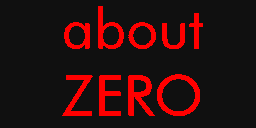What is it about Zero?
You may be wondering about my apparent fascination of Zero, why do I reference it? The narrative started with a book by Charles Seife's: "Zero: Biography of a Dangerous Idea" not to say that Zero should be interpreted as "dangerous", necessarily. To me however, it is more akin to a social engineering principle (perhaps a Hari Seldon "psychohistory") where the primacy of integer numerals starting with One (1) is cast unto our anthropomorphic beliefs related to the counting of our ten digits on our hands, ubiquitous to our human physiology. But what to make of this?
In my personal path of discovery of "truth" in my young life while pursuing numerous projects in the US Economy, I seemed to recognize and feel that something was missing in the social organization of governments, churches or even corporations. I was present numerous times participating in forums and councils that were, for example, often represented as: "we belong and represent District 1 and District 2 and this is what we believe and promulgate to 'we the people' in our conclave." Inevitably, I would participate in the diatribe of the social district but always felt that there was "something missing" in the conversation. Another perspective, another angle or a different conversation of what is possible was always underrepresented and never accessible.
So for example, at a Southern Baptist non-denominational Church the church congregation was organized by Districts: 1, 2, 3, etc. grouped into worshipping enclaves with District leaders and cell groups. The ministry included pastors, members and musical leaders. We were all called to divine a purpose in our groups to choose two areas of worship as relates to the Bible and our interpreting scripture for our cell group members and each other. And like a bolt of lightning - having a strong logical underpinning of my own thinking - I claimed, "District Zero". And that, my friends and readers is the genesis of the belief system that spawned a new interpretation of scripture and social organization. I had even written a lengthy proposal to outline how this would be accomplished.
Does it matter? Is there a point to this "theology"? Inevitably, I say yes. As I later learned, even the nation’s capital in Washington, DC has a "Zero Point Monument" (located in front of the White House.) I continue to discover that thinking in the halo spirit of "Zero" can begin a unique perspective to many things we see and read in our various cultural enclaves. I may also warn that I do believe this is a "dangerous idea" in so much it can open the door to unwanted and perhaps abnormal thinking, however, taken with adequate theological resources, it can act as a salve to break the paradigms of conversation that we often find ourselves in including Substack.
So, although it may be challenging to get away from the semiotics of Zero in our language (e.g. net zero, carbon zero, Pepsi zero, etc.) taken in the context of any gathering or grouping, Zero may be invoked as the "unknown" and a calculus that could quite possibly change the channel of communications that often bring about the same boring results. Use with caution!
/s/





Awesome